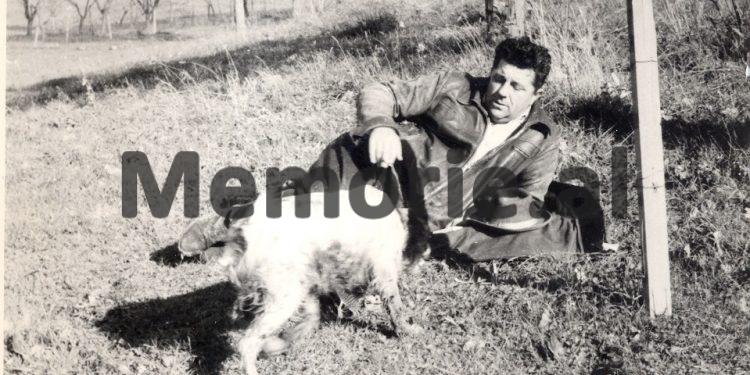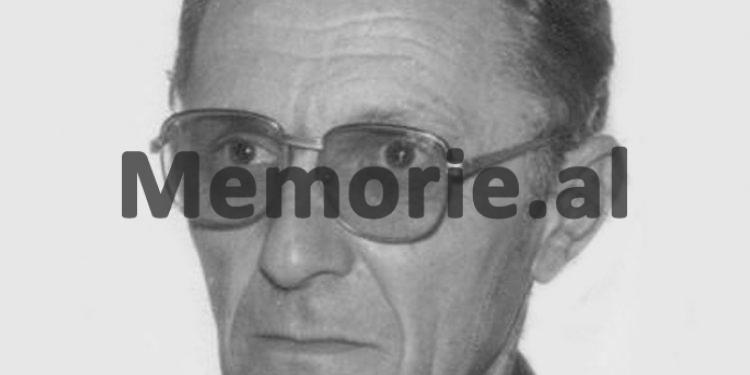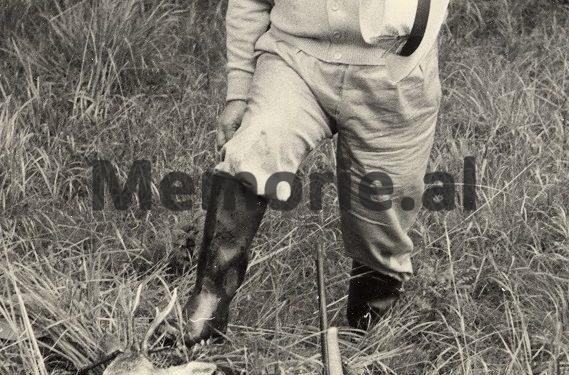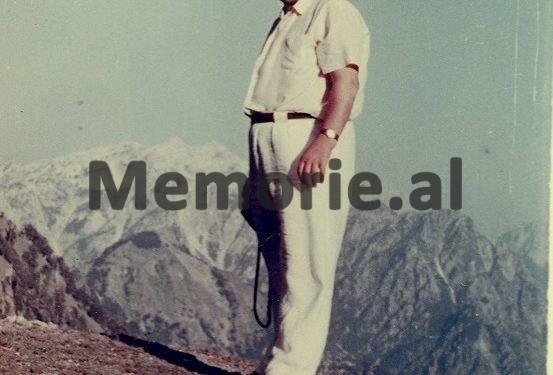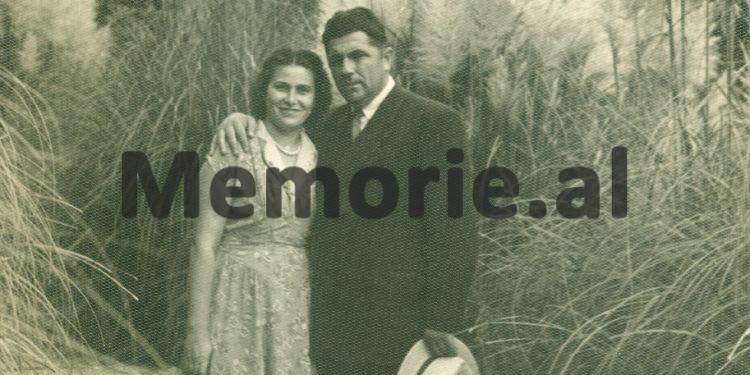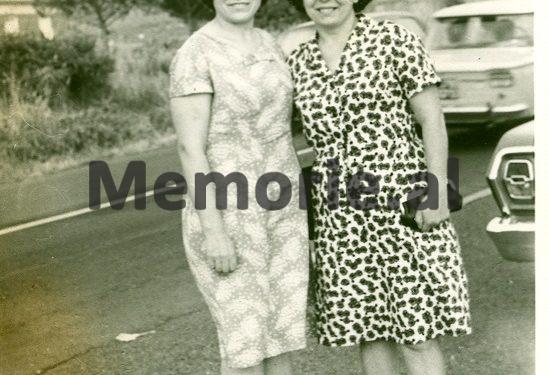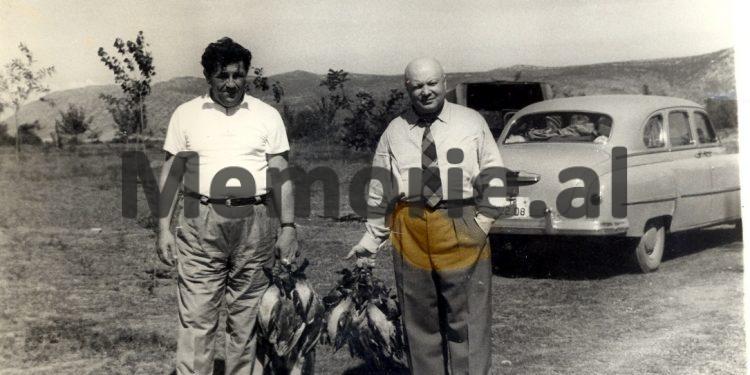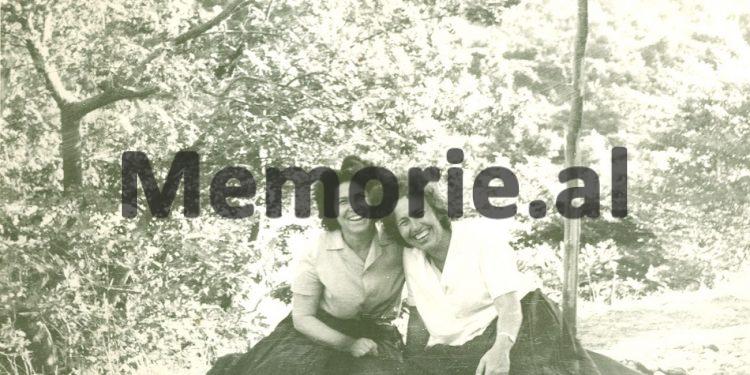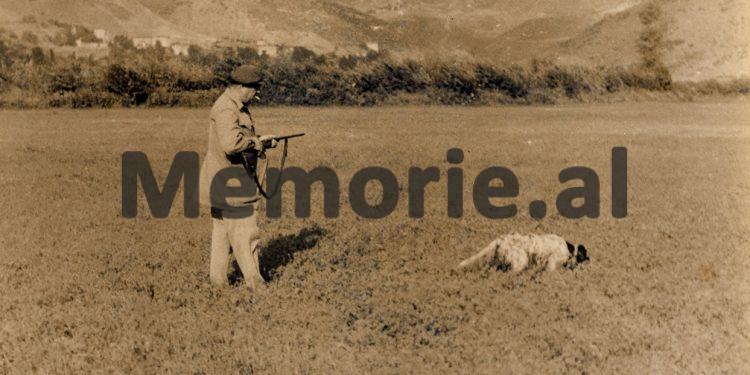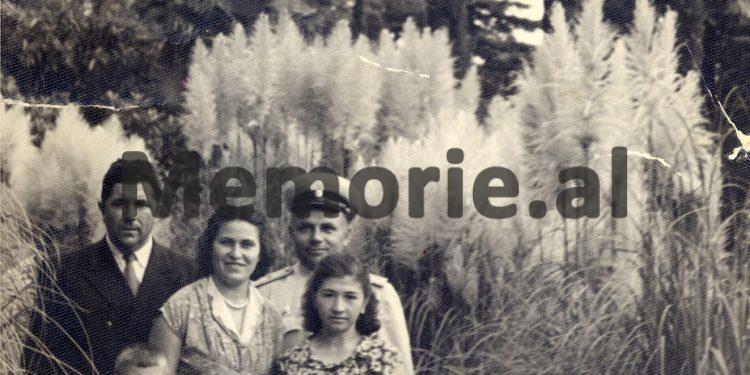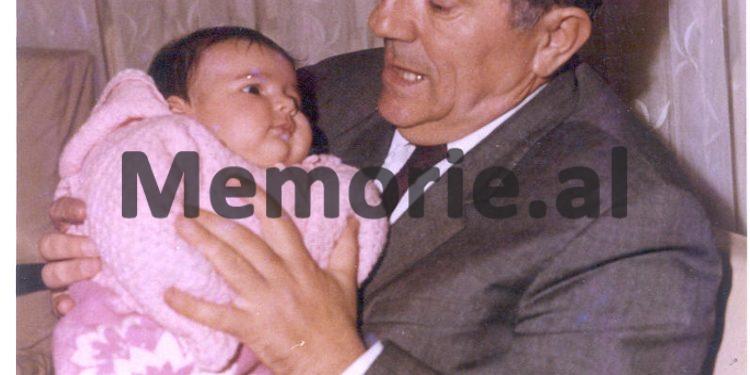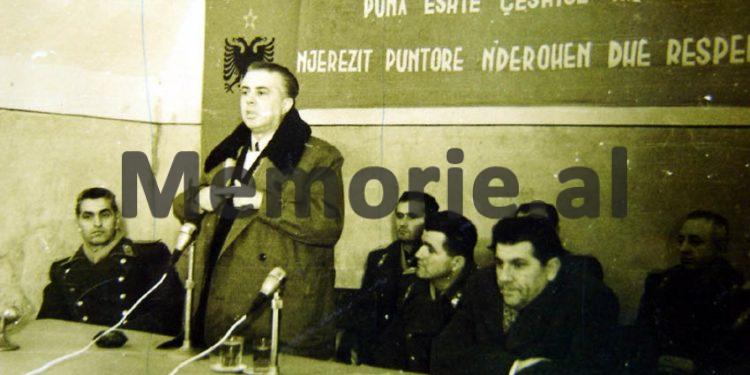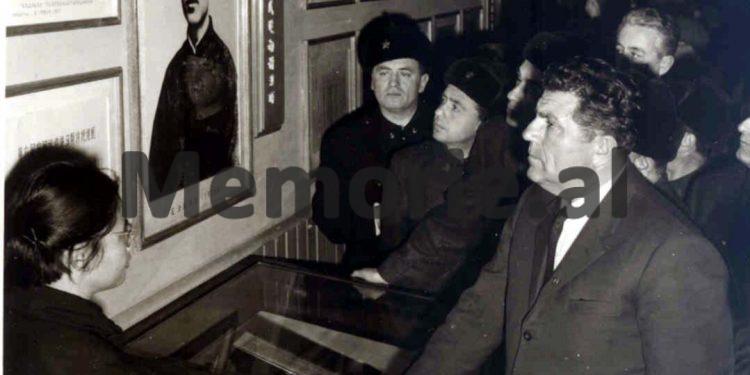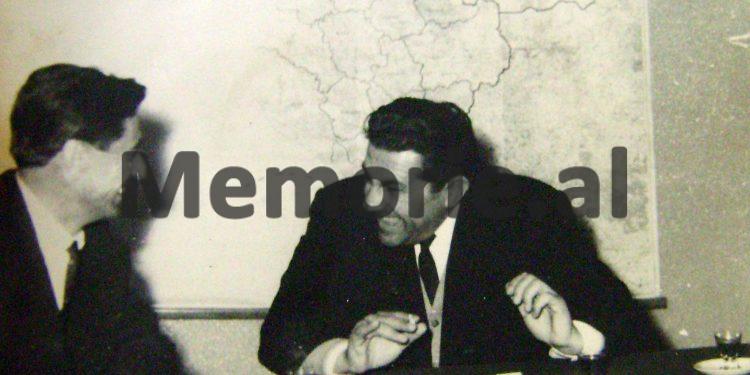Dashnor Kaloçi
Memorie.al publishes the unknown story of Beqir Balluku, former Minister of People’s Defense, member of the People’s Assembly, member of the Political Bureau of the Central Committee of the ALP and the first deputy prime minister of the government led by Mehmet Shehu, who was shot in a secret tunnel on the outskirts of Tirana near the village of Linza on November 5, 1975, after being sentenced to death by the Supreme Court of the People’s Republic of Albania, accused of being “the leader of a coup group in the army”. Rare testimony of Çlirim Balluku, the eldest son of the Balluku family, since the origin of the family, the period of the Zog Monarchy, his activity during the Antifascist War, schooling, functions and duties after 1945, relations with Enver Hoxha, Mehmet Shehu, Hysni Kapon, Gogo Nushi, etc., from the senior leadership of the ALP, as well as why the criticism and attack on him began in 1974, who were the ones who attacked him the most in the first meetings, what was he told his children when he returned home after being attacked as an “enemy of the people”, his internment and family, the execution together with his two subordinates, Petrit Dumen and Hito Çako in one of the secret tunnels of Linza on the outskirts of Tirana, how the family learned that when he was in exile, until the many vicissitudes after the ’90s to find his remains in the village of Vranisht in Vlora, where they were buried by order and under the care of Kadri Hazbiu.
“The crackdown on our father, Beqir Balluku, who for years held the post of Minister of Defense and First Deputy Prime Minister in the government headed by Mehmet Shehu, began in June-July 1974 with the extended meeting of the Army Assets, which was held in the Villa of Zog in the city of Durrës. The blow against him was prepared on the basis of a scenario well designed by the main leaders of the high “pyramid” of the ALP, with special people within the ranks of the Ministry of Defense. This is also confirmed by the fact that the accusations against him started at a time when the material with the theses that were to be submitted for discussion in the Defense Council, had not yet been made public and were locked in the safe of the office in the Ministry of Defense. After that, he was analyzed in the meetings of the Politburo, where Enver Hoxha was the first to direct the attacks on him, accusing him of being the greatest traitor that Albania had until then. After those meetings of the Politburo, the father was also analyzed in the Fifth Plenum of the Central Committee of the ALP, which was held on July 25, 1974, where he was attacked by someone more and by someone less. At the end of that Plenum he was expelled and dismissed from all party and state functions. After that meeting, the father was not arrested like many of the former senior personalities of the top communist leadership who had been beaten years ago, but was released to come home. I remember like now when Dad came home after that meeting and told us everything that had happened at that Plenum, as well as the decisions that had been made there in the address of his person. At the heart of those words that our father told us that afternoon in our house, where all of us family members had gathered, was that he was not a traitor and had never betrayed the Party and Enver Hoxha. After that day, the father stayed for another ten days without leaving the house at all, as even those who hit him had not yet decided where they would send him. During those ten days when my father did not leave the house at all, near our villa in Bllok, the security measures were strengthened, which was evident from the addition of the Guard soldiers. During that time, in the conversations he had with us, for the first time Beqiri spoke openly against the senior leadership of the Party, telling us that it was hitting him in vain and everything that was said in his address was manipulated “.
Testimony for Memorie.al, Çlirim Balluku, the eldest son of the former Minister of Defense, member of the Politburo and the first deputy prime minister in the communist government headed by Mehmet Shehu, who tells the whole unknown story of his father , Beqir Ballukut, considered one of the most popular leaders of the communist regime of Enver Hoxha, who was shot on November 5, 1975 in a secret tunnel on the outskirts of Tirana near the village of Linza, along with his two subordinates, Chief of Staff Petrit Dumen and Political Director of the Army Hito Çako.
Who was Beqir Balluku, what was his origin and past and where was he educated? How did Beqiri first associate with communist groups, who were his closest comrades during the War and how did he first meet Enver Hoxha in 1943? What were the accusations made against Beqir Balluku by Enver Hoxha at the meetings of the Politburo and the Fifth Plenum held on July 25, 1974 and what was Beqiri told to his family after that meeting where he was expelled from all party functions of state? What happened to Beqir during those ten days that he remained isolated in his Block villa, who was the only man who could enter his house and what orders did he give to his children? What did the party secretary of the Albanian Radio-Television, Liberation, ask Beqiri’s eldest son, when he called him to his office and what was the answer he received from him? How was Beqir removed from his Bllok villa to be interned in Roskovec, Fier, and how was he arrested on December 7, 1974 when he was interned in Selenica, Vlora? How did the Balluku family learn of Beqiri’s execution and how were they treated from that period until 1991 when they remained interned in Selenica, Vlora?
Çlirim Balluku, is the eldest of six children of Beqir Balluku, former Minister of Defense, MP, member of the Politburo and First Deputy Prime Minister in the communist government of Mehmet Shehu, who remained in those high positions until 1974, when he was accused and beaten by Enver Hoxha, calling himself a saboteur, enemy and leader of the “Military Coup” that aimed at the violent overthrow of popular power in Albania. As the eldest of the Balluku family, Çlirimi remembers quite well and has experienced many of the events of that distant time when his father was at the highest peaks of the communist regime of Enver Hoxha, as well as later when he was attacked by Enver on the most serious charges, which have already been made public to the wider reader by numerous publications in the daily press after the 1990s. Based on this fact and to get to know even more with the unknown side of the figure of Beqir Balluku and his family, in the continuation of dozens of articles of this nature that have found a place in the pages of Memorie.al, we ‘ We addressed a long interview to Mr. Çlirim Balluku, which we are publishing starting from this issue.
Followed by the last number
Mr. Liberation, how do you remember the beginning of the blow to your father?
The attack on the father started somewhere in June 1974, with the Army Assault that took place in the villa of King Zog which is still located today in the hills of the city of Durrës.
Before that meeting, had you noticed any change in your father’s mood and was he talking about any problems he had at the time?
As far back as I can remember after June 22, 1974, my father started having some problems with a material, which is later known as the “Black Thesis” where it was and what was called the “Sliding Theory”. Regarding the problems that had come to him for this material, at that time we children did not know anything, because the father did not talk to us about work problems. For the first time we learned what was happening with our father only on the eve of the meeting that took place in Villa Zog in Durrës.
After that meeting that took place in Durrës, did Beqiri start talking to you in the family and what he was saying about the accusations that had been made against him there. Did he then mention any of the top leadership names who had criticized him in the Army Asset?
My father started talking at home after the Durrës meeting and he did it because he saw our concern that we were anxious that something was happening to him. In the few conversations he had with us at home, he was again sober and exceedingly concise. My father told us that all the accusations that had been raised in those meetings that were taking place in Durrës, did not stand and that was related to the fact that the Albanian Army was strong. More or less this was the subject of those conversations that my father had with us in those days.
After the meeting in Durrës, did you feel the coldness of the “leadership comrades” with your father and at that time more people came to your house as they had come to you before?
I have told you before that in the early 1970s, members of the Politburo came to our house only for special occasions (birthdays, New Year, etc.). As a result in July 1974, there was no cooling to see from them. As for his friends, as soon as they got acquainted with the problem they left, so no one came home anymore.
But after the other meetings of the Politburo and Plenums where the beating against Beqir Balluku continued, did the father say anything to him when he came home?
Of course we were already talking. The meeting of the Politburo was decisive for the fate of our family. While in the Army Asset the analysis was led by Mehmet Shehu and Hysni Kapo, in the Politburo all members participated, headed by Enver Hoxha. The accusations were the same as those of the politically dressed Army Asset, which were strongly opposed to the end by Imata Beqiri.
What was your father’s opinion at the time regarding the charges against him?
From the conversations we had at that time with his father, he came to the conclusion that: all the accusations against him were fabricated and prepared based on a very clear scenario and with the aim of hitting and removing him from the Minister of Defense. He was being tried for a material which he had not yet submitted completed, and strangely enough, that material was in the safe of the Ministry of Defense.
What was the meeting where Beqir Balluku was hit hardest and who were the ones who raised charges and took a tougher stance against him?
From the Army Assets in Durres, to the Politburo to the Fifth Plenum held on July 25, 1974, the blow came escalating and growing. While in the Army Assets he was accused of opposing the theses of the Defense Council, in the Politburo the accusations were aggravated by being described as “a deviator of the Party line and as an agent of imperialism and social-imperialism”. Maya reached the Fifth Plenum, which I would call a fabricated political trial with the motto: “What else do you have to add to the enemy of the people”? The plenum turned into a masquerade where most of those present took the floor to win credit to Enver Hoxha. So the investigation started in Aktiv, the decision was taken in the Politburo and the claim was given in the Plenum. This is how this mechanism has always worked.
What about Enver Hoxha, did Beqir Balluku attack?
I want to add something. Enver Hoxha did not participate in the Army Asset, he followed the developments from Tirana. This is not an attack but a directive. At the Bureau meeting he left no room for others for analysis, but gave the directive: “Beqiri has come out of the line of Marxism-Leninism.” That’s enough to describe how this meeting went next.
Did your father tell you what accusations Enver had made against him in that Plenum?
As a start I wanted to make a parenthesis regarding that Plenum. We thought that the day of the Plenum would be the last time we would see our father, Beqir, but they did not arrest him immediately after the meeting, so he was lucky enough to return home where he talked at length with us telling us all that had happened in that Plenum and everything had been said to him.
Can you tell us something about those you talked to your father about when he came home after that Plenum ended?
We talked for a long time, but what is most important for you, I think are the accusations of Enver Hoxha addressed to our father, Beqiri, and what were the words he said to us at home regarding those accusations. I remember that my father came home in the afternoon and his first words were about the decisions that were taken there in his address, ie his expulsion from all party and state functions and he was also expelled from the Party. At that Plenum, Enver had said that “Beqir Balluku was the greatest traitor that Albania had seen until then”. But those accusations did not stand at all, because if Beqir Balluku had been a traitor, he would have betrayed in 1948 and 1960 (I remember the events with Tito and the Soviet military attaché in Tirana) when he was approached by a great outside support. And by no means could his father betray him in 1974 when he had no support whatsoever. These were more or less the essence of the father’s answers to the accusations made by Enver Hoxha in the Plenum. I also wanted to add that knowing our father well, with what was happening, I personally completely lost faith in the Party.
But why until that time you had no reservations about the line that Enver Hoxha was following with the senior leadership?
To be as honest as possible with you and the reader to the end, I wanted to say that I and my brother, Ladin, since we had been out with sports several times, had seen the economic level and development of those countries and often times we made the comparison between them and Albania. As for the sentences of innocent people for political problems, Ladin and I said that was the culmination. But all those conversations we only had with each other and never outside the house.
What happened to your father after that Plenum and how did things turn out later?
After that Plenum, the father stayed at home for another ten days, because apparently those who had attacked and beaten him in that Plenum had not yet decided where to send him. In those days when my father was locked in the house, around our house, security measures were increased, which was done unnoticed, but it seemed quite clear with the addition of armed soldiers a little further to our villa. While the father remained locked in the house, the rest of us went out and no one stopped us. But I think that the measure of surveillance was imposed on us as well.
During the ten days that Beqiri was locked up at home, did you have any visits and did someone other than a member of the family step on it?
Those ten days two people could come to our house. The first was a dentist from the Central Polyclinic, whom I went to and picked up, as my father had dental problems. When I went there, he was very willing and came home treating him in conditions that a man outside the dental clinic could treat. I can say that, both my going there and the arrival of that dentist in our house, have been checked by the relevant authorities.
What about the other man you said came to your house, who was he?
The other person who came to our house in those days when my father was there isolated, after the Plenum who had called him a traitor and an enemy, was the cook of our family, Nuredin Bufi, who came to our house until the last day we stayed. there. We had Nuredin as the man of the house (he worked there for more than 25 years), but his arrival at that time was more than excessive courage, as after the dismissal and expulsion of the father from all party and state functions, he was also stripped of all service personnel, including the driver, escorts, guards, etc. For the gratitude or kindness that Nuredin showed to our family, the State Security authorities later sentenced him to two years in prison, ostensibly accusing him of an iron door.
What about your mother, Mrs. Taibe Kafazi, where did she come from, what social class did her family belong to and where did she work until then?
Our mother is originally from Berat and she comes from a family of beys who had melted almost all their property for the Anti-Fascist National Liberation War. One of our mother’s brothers, (my uncle) was killed during the war in 1943 and has been declared a Homeland Martyr. One of the uncles, who during the War when he was illegal in Tirana, had acquaintances and friendship with our father, Beqiri and as a result became friends with their family. And the mother took an active part in the War, joining the 3rd Partisan Brigade, where for a short time her father was a former commissar. While our mother, Taibja, in 1974 when the attack on us began, had worked at the Artistic Enterprise “Migjeni” in Tirana.
After leaving Tirana on August 5, 1974, where did they send your father, Beqir, mother, Taiben, Lulen and Agim?
After leaving Tirana, the father, mother, Lulja, Agimi and Agroni traveled to the town of Roskovec, which was designated as the place of internment. In that small town, they settled on the second floor of a palace, which was “arranged” apostates for our family.
How long did they stay in the town of Roskovec and did you allow the others in Tirana to go and meet them?
In Roskovec, the father and the part of the family that accompanied him did not stay for more than a month and a half, because they moved them from there, deporting them again to Selenica, Vlora. But during that period of time they stayed in Roskovec, we were not prevented from going there, but of course all our movements were controlled by the State Security.
During their time in Roskovec, what was the financial income of the family and how did your father, Beqiri, spend his days there?
While the father and mother, Lulen, Agron and Agim were staying in Roskovec, they were supported only by their father’s pension, which was not given to them immediately, but was delayed for a long time. As for the question you asked about how my father spent his days there in Roskovec, I tell him that during that time, he did not leave the house for a minute. He stayed at home reading books and also listening to the radio and watching the black and white TV that I had sent him from Tirana. This is in terms of free time because at this time the father had something important to do, the “self-criticism” in writing that was asked of him by the 5th Plenum of the Central Committee of the ALP.
Let us go back a little later to the time when at the beginning of this Plenum the question was asked by Enver Hoxha: “What punishment do you think we should give to Beqir Balluku”?
After hearing the most zealous people shouting “arrest the enemy of the people here”, there was a proposal that in the context was: “to think and within three months to present to the Central Committee in writing, a sound self-criticism where to present our activity his hostile ”. Enver Hoxha supported this proposal and the Plenum, realizing that this was his order, approved it unanimously. So in Roskovec the father wrote a lot and this material was brought to Tirana by brother Agimi, who handed it over to Haxhi Kroit, Enver Hoxha’s secretary. I want to emphasize that none of us have read this material./Memorie.al
Continues tomorrow




